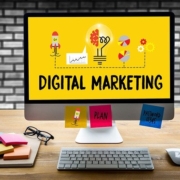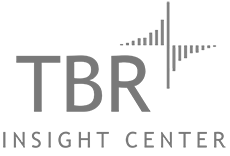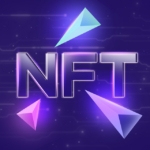Capgemini aims for growth in digital marketing services
Building regional capabilities through acquisitions to disrupt the APAC market
In TBR’s most recent Digital Transformation: Digital Marketing Services Benchmark, my colleague Boz Hristov examined trends across different regions and wrote, “While regional nuances … compel vendors to build local resources to ensure they can tailor culturally aligned campaigns, the evolving nature of the DMS [digital marketing services] market is also creating country-specific openings. For example, the last three Olympic Games including PyeongChang (South Korea), Tokyo (Japan) and Beijing (China) have been driving investments and opportunities within Southeast Asia.” In covering Capgemini for more than a dozen years, I’ve seen how the company has been able to combine internal capabilities development and highly strategic acquisitions to stay on the leading edge of trends across the IT services space, including digital marketing services. At the same time, acquisitions enable Capgemini to diversify its geographic reach outside its home market of Europe, namely in North America and APAC.
Overall, APAC is becoming a region of acquisition focus as Capgemini strives to diversify global revenues and expand work with local clients in the region. APAC is a major global service delivery location, but activities with local clients are limited outside of Australia and New Zealand. Recent acquisitions in APAC that build on Capgemini’s local market reach include those of Empired in Australia, around digital and cloud; Acclimation in Australia, around SAP consulting and systems integration; Multibook’s SAP global services line in Japan; RXP Services in Australia, around digital, data and cloud; and WhiteSky Labs in Australia around MuleSoft consulting.
Capgemini’s innovation, design and transformation brand, Capgemini Invent, is rolling out its capabilities across APAC. Capgemini is establishing a new network around frog, the brand experience design consulting arm of Altran. During 2020 frog scaled from about 500 people in the U.S. and Europe to about 2,000 by absorbing Capgemini Invent’s customer experience team and employees from Capgemini’s acquisitions of global design studio Idean, innovation firm Fahrenheit 212, agency June 21 and customer engagement marketing firm LiquidHub. Frog initially had one studio in Shanghai but has expanded in APAC with studios in Singapore; Hong Kong; Sydney and Melbourne, Australia; and India. Frog’s APAC business emphasizes industrial and special design, tied with the new Capgemini Engineering brand experience and design-led transformation.
In some ways, this is a natural outcome of making related tuck-in acquisitions: Eventually, Capgemini creates scale to establish a new business unit or service line. Additionally, it is a way of retaining acquired talent by showing that employees will be part of a special group assembled from similar acquisitions.
Tuck-in acquisitions supported digital services establishment in North America, providing use cases and lessons learned
In 2016, 2017 and 2018, Capgemini made several acquisitions in North America to initially build out its digital services capabilities, some of which now reside in frog. Fahrenheit 212, which Capgemini acquired in February 2016, enhanced Capgemini’s business transformation consulting and digital customer experience solutions portfolio. Lyons Consulting Group, which Capgemini acquired in September 2017, strengthened the company’s position in digital commerce, specifically around integrating Salesforce Commerce Cloud solutions. Idean, which Capgemini acquired in February 2017, expanded Capgemini’s digital transformation consulting capabilities and added seven digital design studios worldwide.
The acquisition of LiquidHub in February 2018 further expanded Capgemini’s digital services, notably digital consulting capabilities in North America. With LiquidHub, Capgemini gained customer experience capabilities and improved its ability to capture digital opportunities with clients in the U.S. LiquidHub augmented Capgemini’s client base by adding logos, such as Wells Fargo, Chase, Godiva, Subaru, Microsoft and Amgen, and improved Capgemini’s relationships with clients’ CXOs.
APAC will become a larger revenue contributor in the long term
By making acquisitions, expanding its portfolio, keeping up with trends around digital marketing services, and even leaning on its core strengths around engineering services, Capgemini could become more disruptive in the APAC market in the very near term. The vendor’s combined revenue from APAC and LATAM accounted for 7.8% of total revenue in 2021 and increased 26.2% year-to-year as reported in euros, outpacing revenue growth in other regions.
TBR’s most recent report on Capgemini was published on March 7 and provides a detailed analysis of the company’s performance and investments in 4Q21 and 2021. Recent deals such as with Volvo Cars to enable digital transformation of the client’s operations in the Asia-Pacific Economic Cooperation by implementing Salesforce solutions such as Sales Cloud, Service Cloud, Marketing Cloud, Experience Cloud and Configure Price Quote software exemplify Capgemini’s activities that are supported through investments in digital and cloud capabilities. APAC provides opportunities for Capgemini and might be even better suited to pave the way to growth now that the company’s home market of Europe might be disrupted by the war in Ukraine. The deal with Volvo Cars provides Capgemini with a good opportunity to expand into the emerging China market, as Volvo is a well-known European brand but is now managed out of China.




